Don't Be Sad, Millennials: Today Is Actually Pretty Great! (P.S. You're All Going To Die)
by Maya Gurantz
In The Noonday Demon, Andrew Solomon makes the point that depression sufferers see the world, their own circumstances and failings, more accurately than healthy people — positing thus that perhaps optimism is the defining characteristic of the human condition.
I think of this often with regards to my relationship with television. Television is like depression. Without it, I can think America isn’t so bad. With it, I sometimes want to kill myself.
Honda’s “Pretty Great” ad, made by Santa Monica-based Rubin Postaer and Associates, appears on its surface to be a simple, direct pander to millennials — a typical commoditization of hipness and dissent. Yet its very attempt to mask with cloying optimism the troubles of the world (as solved by driving a Honda) instead renders suffocatingly inescapable the impending apocalypse. In 30 seconds? you say: How?
Part 1: Today The World Is Pretty Sad (00:00–05:08)
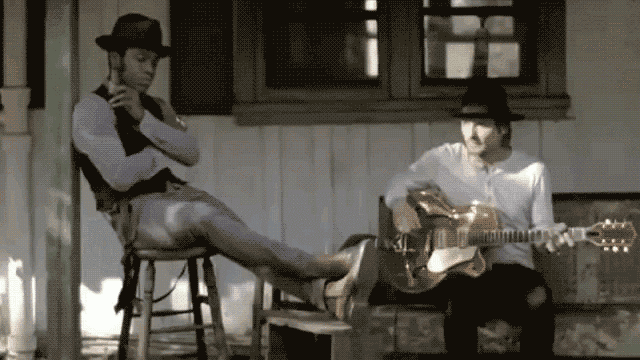
The commercial opens with two men — one singing, one playing guitar. The singer is black and both men wear black fedoras and sit on the porch of a shotgun shack, signifying, of course, the blues. With a studiously glum face, the singer tells us: “Today — the world is pretty sad.” (The song is by hat-loving “juke music” outfit Vintage Trouble.)
Pretty Sad World is represented in quick succession by:
• A bald anchor on a news station called “Pretty Bad News” —
• Awkward jump cut pan over a sign saying “Bankruptcy Court” —
• Oddly, two frames of TV snow (insidiously connecting Pretty-Sad-World-montage to Grownups-from-Old-TV-Snow-Time) —
• An endless landfill of plastic being pushed by a bulldozer.
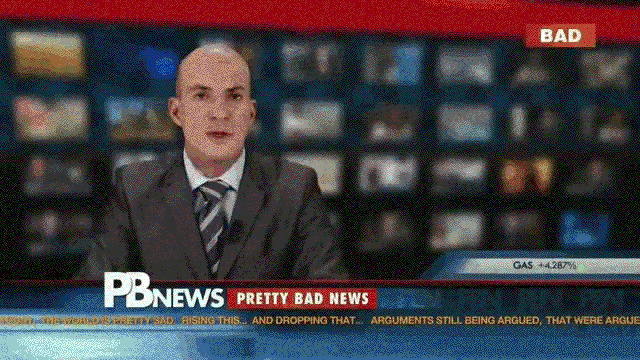
Environmental degradation, financial instability, worldwide chaos. Huh. The world is pretty sad.
Part 2: But wait! (05:08–07:23)
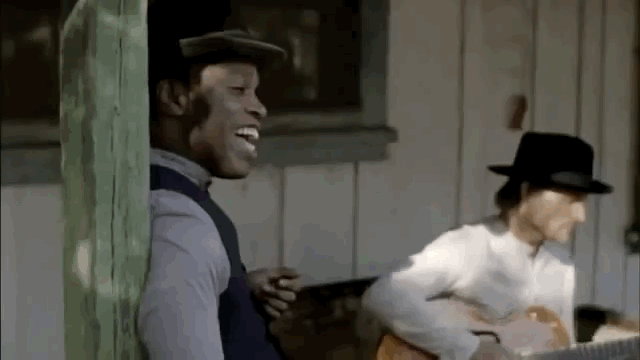
Because look at that shiny black Honda speeding through the sunrise desert! Honda provides a bridge from sad to glad — even though Shotgun Shack Guy on one side thinks the world is pretty sad, on the other side, a luxuriantly long-haired white model tells us, reassuringly, “But there are great things too!”
Part 3: There are? Well, actually (07:24–10:28)
Now, in direct address to the camera, broken between three speakers who are so young they shine, the commercial’s thesis:
“Today is actually pretty great.”
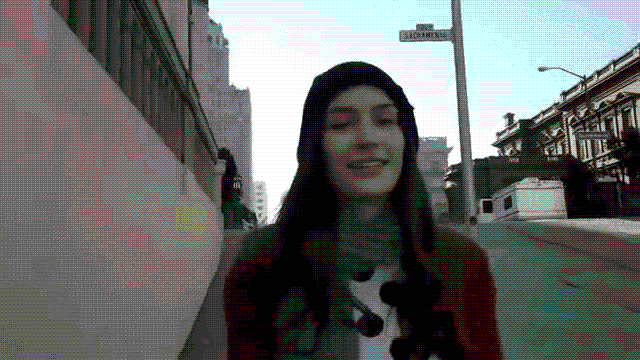
With grunge chic, gorgeous hair, and a flying Silverlake beard, the Millennial Dialectic has been established in all its passivity: the world is pretty sad — but today is actually pretty great!
The evil beneath such banality reveals its teeth in three words: “pretty,” “actually” and “today.”
Pretty. Pretty sad. Pretty great. Not too much one way or the other. Like, ok. “Pretty sad” and “pretty great” neutralizes desire, neuters pain, takes the tragedies and joys of living in the world and renders them both safe and indistinct.
Earlier, in the “Pretty Bad News” clip, a chyron scrolling along the bottom of the screen parodically proclaims “Rising this… and dropping that… arguments still being argued that.”

As if the rising and dropping this and that — economy, war, rights as citizens, financial insecurity — these things over which arguments are being argued — are just, you know, whatever. Vague forces. Stuff that rises and falls. LOL nothing matters.
Conversely, the target demographic’s assumed assets — health, prosperity, access to technology, the ability to buy a car — aren’t extraordinary possessions for which to feel tremendous gratitude. They’re actually pretty great! Neat, even.
Actually. And with that, actually. The objectionable use of “pretty” pales in comparison to the operation of “actually” — the statement of outrageous and ignorant privilege that today is actually pretty great.
First, the use of actual signifies that today’s “pretty greatness” is a surprise to these people. Because they entirely lack perspective on the fact that they are well-fed and young and beautiful and stylish and don’t have to worry about war on our soil or famine or disease or see where their e-waste goes.
The second offense comes from the intimation that today’s surprising actual pretty greatness can possibly begin to off-set Pretty Sad World.
Part 4. But it can! We’ll show you! (10:29–20:22)
In this section, young attractive white people present rhetorical questions to make the viewer believe that this generation’s “pretty great” wins over “pretty sad,” punctuated by a Honda skidding and sliding across the screen:
“What about giving back?”

Ok. Saving some whales. I’ll buy that.
“What about getting accepted for who you are?”
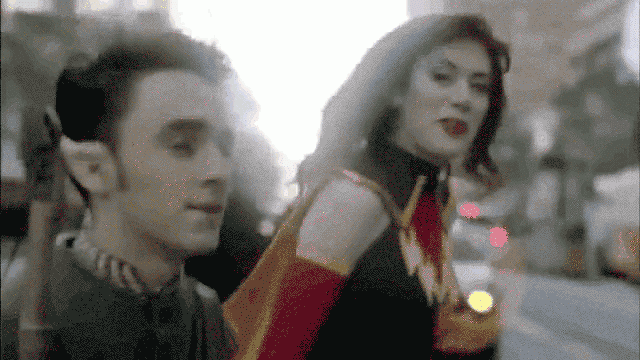
Ok, no. The sentiment? Sure. But these are not representatives of some oppressed minority group finding a place in the world. This looks to me like a heterosexual white couple in a major city going to a cosplay event. (What makes society’s acceptance of them heroic? Their participation in cosplay or the fact that he’s shorter than she is?). Call me Old Person from TV Snow Time, but Pretty Sad World vs. Pretty Great, it’s 1–1.
“What about chemistry?”
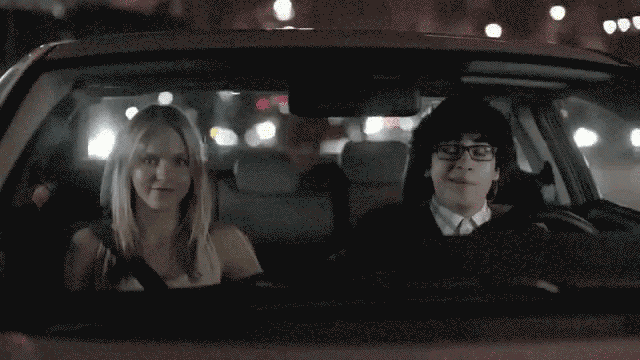
Wow! A hot blonde wants to fuck that guy! That must mean the world is actually ok! Sad 2-Glad 1.
“We are driving on Mars” is voiced over JPL’s computer-simulated footage of the Rover being dropped onto Martian soil — “and engineering fast cars!” says a white woman on a racetrack.
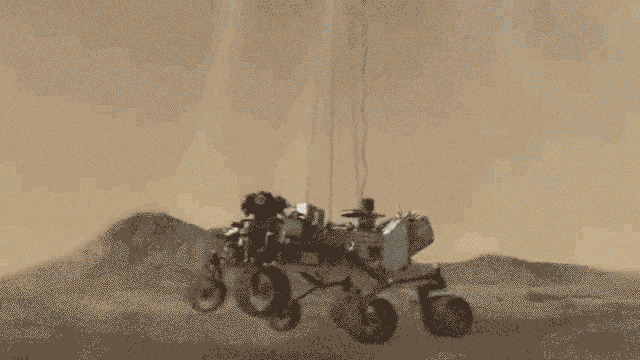
When we look at the script again, apart from the visuals:
What about giving back?
What about getting accepted for who you are?
What about chemistry?
We are driving on Mars —
And engineering fast cars!
— it becomes a bizarre parade of non-sequiturs. We have sexual chemistry and the Mars rover! We can get accepted for being ourselves — and engineers are making our cars go faster! WHY WORRY? There’s a trash swirl in the ocean, but I’m feeling cute today! Massive economic collapse due to corrupt business practices which don’t appear to have changed — but I just went to this wacky party where people wore costumes and no one made fun of me like they did in junior high school! The government is spying on me, but I just watched this Upworthy clip! Sad 4-Glad 1.
And this is the evil: That the sad and glad things, as posited by Honda, can in any way be made equivalent. Which leads to the third dangerous word, which has been vibrating under this parade of joy and now getting its own time to shine.
Part 5: Today! (20:23–24:17)
“Today” joyfully said by —
• Cartoons!
• Asians! A whole gang of ‘em! Kinda like cartoons, but different!
• White guy with long blonde hair paragliding off a cliff!
• Reverse shot — he’s doing this defying awesomeness while VIDEO CHATTING WITH HIS HOT BRUNETTE GIRLFRIEND — wow! Hang gliding isn’t enough? You have to text someone while capturing it too?!
•More white people!
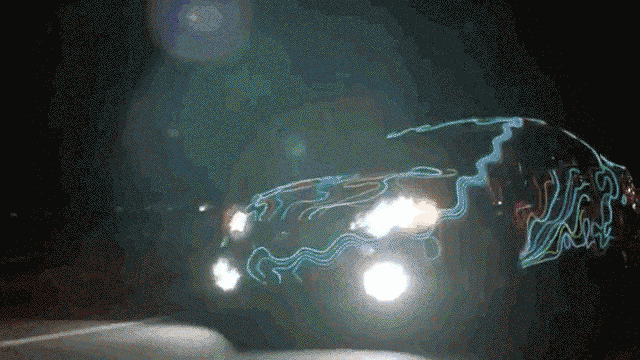
Today. Don’t let’s worry about tomorrow — what about right now? You’re 30 pounds overweight, but what about eating that delicious pork burger now? Doesn’t that sex without a condom feel good right now? You don’t feel like voting today? Totally. You don’t know what is going on in the world, but your friend just tweeted the link to this online petition and you signed it! Today!
Part 6: The Sell (24:18–30:04)
The finale is just an anticlimax — a tagline (“The redesigned Honda Civic Coupe — one more thing to love about today”) while the car swerves around and drives off into the desert’s wild day and its driver, another white guy, yells “woo hoo!”
Millennial advertising actively addresses and discards that we are facing The Sixth Extinction, the one brought on by ourselves, in which the seeds of our own destruction were sown through our need for progress, as Western Civilization turned out to be nothing more than a march to annihilation, one towards which we have been hurtling for thousands of years — today is actually pretty great!
Perhaps “Pretty Great” itself performs Solomon’s point, pandering as it does to the millennial optimism of millions of young people who see not the world as it is but as it is on the selective reality of their Facebook feeds — on what they see right now. Our doom is programmed in the optimism that is the defining characteristic of our human condition. Thus our doom is programmed in us. We were meant to be this way. We were meant to end the world. Woo-hoo!
Maya Gurantz is a Los Angeles-based artist and writer. She has shown at venues like the Museum of Contemporary Art Denver, written for places like “This American Life,” and blogs here.
